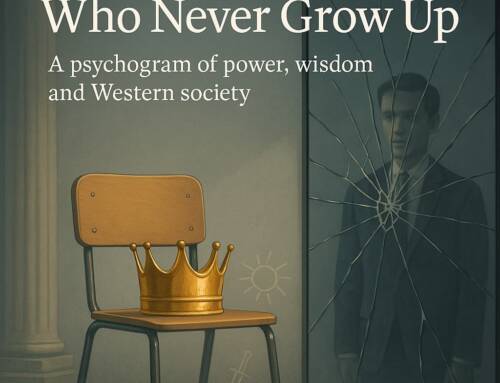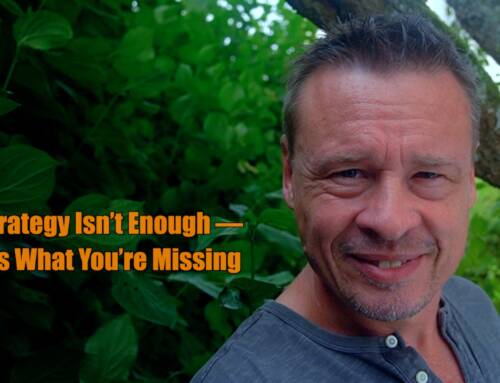In the world of healthcare, people often only seek the help of a physician or a physiotherapist when they experience pain. This reactive approach, waiting for the “check engine light” of pain to come on, can sometimes result in missing out on supercritical aspects of our well-being.
Renowned physiotherapist Kelly Starrett, DPT, from “The Ready State” shares a thought-provoking perspective on that in the 50 sec video below.
I’ll take it from there and draw parallels between the phenomenon he describes to what I consider a similar situation in the realm of international development cooperation.
The Not Ready State of International Development
Kelly Starrett captures the essence of how many of us deal with discomfort, pain, or challenges. He emphasizes the importance of proactive care and taking action before pain becomes overwhelming. His philosophy can resonate beyond the world of physiotherapy and offers valuable insights for various aspects of life – including the field of international development cooperation.
Similar to how individuals tend to visit healthcare professionals only when they’re in pain, clients in the international development arena often engage communications consultants only when they believe their efforts need a boost in visibility. Starrett’s words can be extended to this context, where organizations wait until late when they realize that the communications components also need to be taken care of; meaning later in project implementation recognizing the importance of effectively showcasing their impact and using proactive outreach techniques.
Shifting the Perspective
Starrett’s stance urges a shift in our collective perspective. He advocates for looking beyond pain and focusing on functionality. Similarly, in the world of international development cooperation, it’s time to shift the narrative from merely seeking communication assistance when the work plan implementation indicates the project should’ve been doing comms for 1.5 years already and moving to proactively valuing the positive impact communications can have on your impact, as opposed to using it only to attempting to showcase the project’s impact.
Taking a cue from Starrett, organizations should identify key indicators of impact that require continuous monitoring and communication. This approach emphasizes functionality over pain – where the “pain” might be the struggle to communicate effectively. By implementing communication strategies from the outset, development organizations can weave effective messaging into the fabric of their projects, preventing miscommunication from hampering the impactful work they do.
Emphasizing Function over Pain
Starrett’s message centers around emphasizing function over pain, pushing us to consider the long-term implications of our actions. In the context of international development, this means prioritizing the functionality and effectiveness of projects’ communications right from the start. Effective communication should be woven into the core of initiatives, rather than treated as an add-on or simplistic means to make things look good.
Wrapping it Up
Starrett’s reflection extends beyond physiotherapy, offering profound insights that can transform the way we approach various aspects of life. By embracing a proactive mindset and focusing on functionality and impact of communications, international development cooperation can create a significant and lasting effect.
Just as Starrett advocates for taking action before pain becomes overwhelming, development organizations must take steps to communicate their impact consistently and effectively. This shift from pain-centered reactivity to impact-focused proactivity will ensure that the check engine light of bad communication never dims the remarkable impact of their work.





Leave A Comment